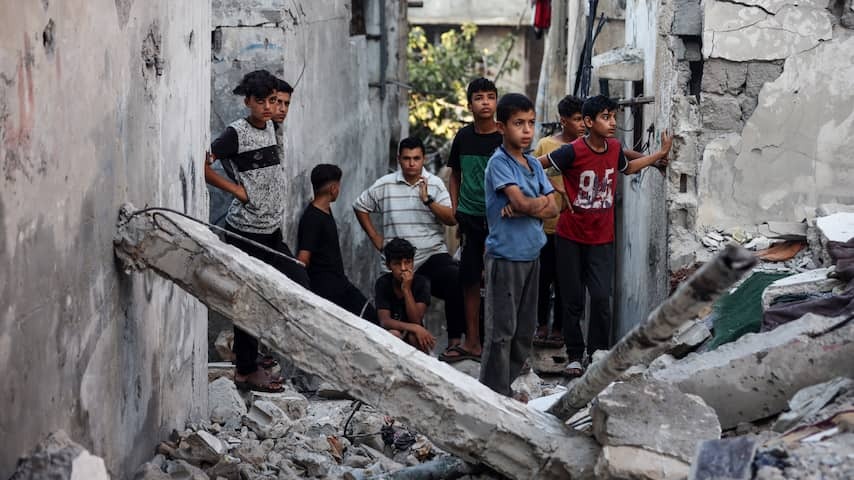
Negotiations for a ceasefire between Israel and Hamas are stalling, Israeli and Palestinian sources reported on Saturday. This is in contrast to earlier positive signals regarding the negotiations. Among other things, who may deliver humanitarian aid in Gaza is under discussion.
Since last Sunday, negotiations for a sixty-day ceasefire have been taking place in the Qatari capital, Doha. But Israeli and Palestinian sources tell news agency Reuters and the BBC that there are two major obstacles that are jeopardizing the talks: the withdrawal of the Israeli army from Gaza and who may provide humanitarian aid there.
Israel wants to maintain a military ‘buffer’ along the border between Gaza and Israel, and also in the south of the Gaza Strip. Hamas does not agree with this. The militant movement wants the Israeli army to withdraw completely.
This is mainly due to a plan presented this week by Israeli Defense Minister Israel Katz. Katz wants to build a “humanitarian city” on the remains of the bombed Rafah. Hundreds of thousands of Palestinians must be forcibly relocated there.
A Palestinian official involved in the talks believes the plan should pave the way for Palestinians to be completely removed from the area. US President Donald Trump and Israeli Prime Minister Benjamin Netanyahu have previously spoken publicly about housing the Palestinians in surrounding countries.
Hamas wants humanitarian aid from the UN in Gaza
Furthermore, Hamas demands that humanitarian aid under the leadership of the United Nations and other international aid organizations be allowed back into Gaza. Israel is not yet able to agree to this. The country wants the controversial Gaza Humanitarian Foundation (GHF) to remain responsible for, among other things, distributing food packages in Gaza.
The GHF, which is supported by Israel and the United States, has received a lot of international criticism. Since the organization began distributing emergency aid on May 26, at least eight hundred deaths have occurred, according to the UN human rights office (OHCHR).
Negotiations started hopefully
According to Palestinian sources, the talks are on the verge of collapse. They accuse Israel of stalling for time during Netanyahu’s visit to Trump last week. The sources accuse Netanyahu of meanwhile sending a delegation to Doha that was not authorized to make decisions.
The peace negotiations, led by mediators from Qatar and Egypt, started hopefully this week. For example, Trump spoke positively about the talks during Netanyahu’s visit. “I think everything is going very well,” he said. He also hoped that a final agreement would be on the table this week.
The proposal for the ceasefire is largely of American origin. The proposal states that Israel and Hamas must lay down their weapons for sixty days. Furthermore, Hamas would release half of the approximately fifty remaining hostages. Twenty of them are said to still be alive. According to the proposal, Israel would release about a thousand Palestinian prisoners of war. As soon as the ceasefire takes effect, negotiations on permanent peace must also begin.
The negotiations continue despite the negative reports. US envoy for the Middle East, Steve Witkoff, will travel to Doha this week to attend the talks.